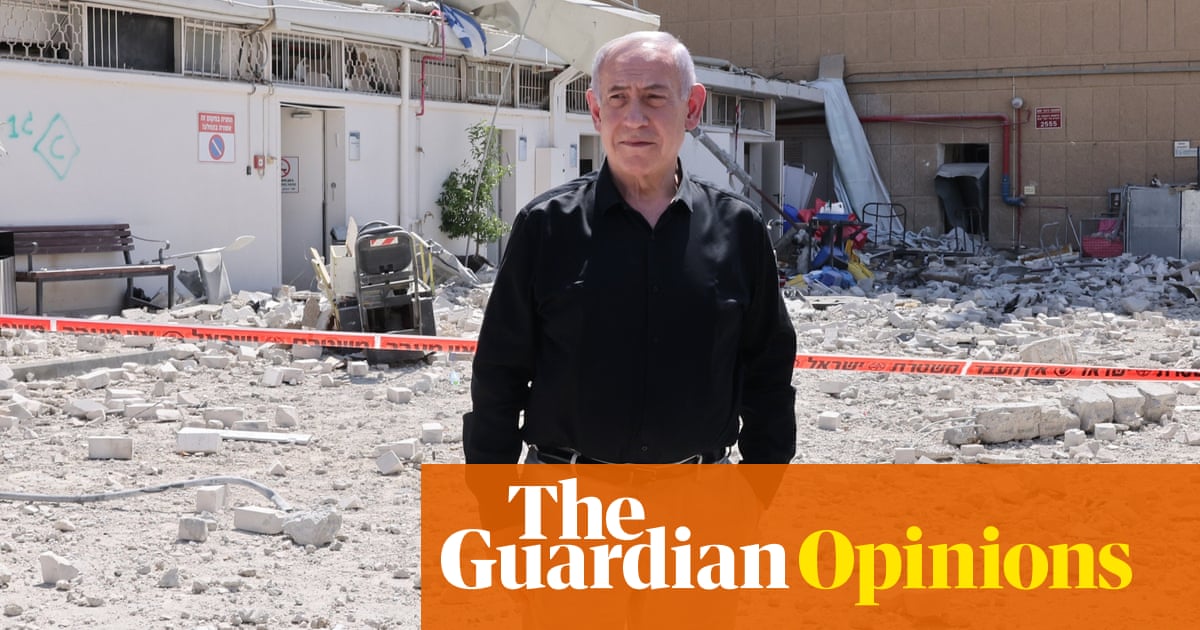The maxim that wars are easy to start and hard to end does not appear to be troubling Benjamin Netanyahu. For the Israeli prime minister, conflict is an end as much as a means, extending his political survival. Under international pressure – however belated and insufficient – over the slaughter in Gaza, he launched the attack onIran. Initially presented as essential to prevent Tehran from the imminent acquisition of a nuclear bomb, a claim running counter to US intelligence, it is increasingly discussed asthe path to bringing down the regime. The defence minister, Israel Katz, has said that Iran’s supreme leader, Ayatollah Ali Khamenei, “can no longer be allowed to exist”.
Donald Trump has generally seen armed conflict as a trap rather than an escape route. Hesaidthat the US would “measure our success not only by the battles we win but also by the wars that we end – and perhaps most importantly, the wars we never get into”. Yet his failure to achieve the Nobel-worthy peace deals he wants, and Mr Netanyahu’s manoeuvring, appear to have made him keener on US intervention. Israel wants US bunker-busters to attack the underground nuclear facility at Fordow. There isno guaranteethat those would succeed. Israel’s regime-ending aspirations further undermine its claim to offer what might be called, in the term infamously used of the 2003 invasion of Iraq, a cakewalk. There isn’t a bad plan for the day after; there is no plan.
What Mr Trump and Mr Netanyahu have in common is that they consistently subsume their nations’ best interests to their personal political imperatives, and that neither cares about 90 million Iranians. The brutal theocratic regime isrepugnant to many, but hundreds of civilians have already died as Israel offers to bomb themto freedom, and the horrors of Gaza suggest that far worse could come. Many Iranianslived through the unforeseen and unwanted consequencesof toppling a hated ruler in 1979, and more watched those spawned by the US invasion of Iraq. Meanwhile, Israeli civilians now face Iranian retaliation.
Israel’s impunity over its war of annihilation in Gaza has encouraged it to take this dangerous and illegal course. European leaders who were late to voice qualms about Gaza, and have muted them since the strikes on Iran began, should be takingconcrete actionto stop Israel’s assault as well as to promote negotiations. Unbelievably, Germany’s chancellor, Friedrich Merz,described itas “dirty work Israel is doing for all of us” (he reportedly urged “moderation” in a subsequent call with Mr Netanyahu). He may change his mind if energy prices soar, this fragile region is further destabilised and state failure forces Iranians to flee to Europe.
The attorney general, Richard Hermer, reportedlywarnedthat any British involvement with this war beyond defensive support would be illegal. Sir Keir Starmer is rightto call for de-escalation and negotiationto tackle the nuclear issue. Mr Trump likes the idea of quick wins, but knows high oil prices and intervention would alienate many of his backers. As of Thursday evening, Iran had avoided targeting US bases and assets, and its foreign minister, Abbas Araghchi, has reportedly spoken several times to Steve Witkoff, Mr Trump’s special envoy. Though that’s a long way from the “unconditional surrender” demanded by Mr Trump, there are escape routes from this crisis. Mr Netanyahu must not be allowed to destroy them.
